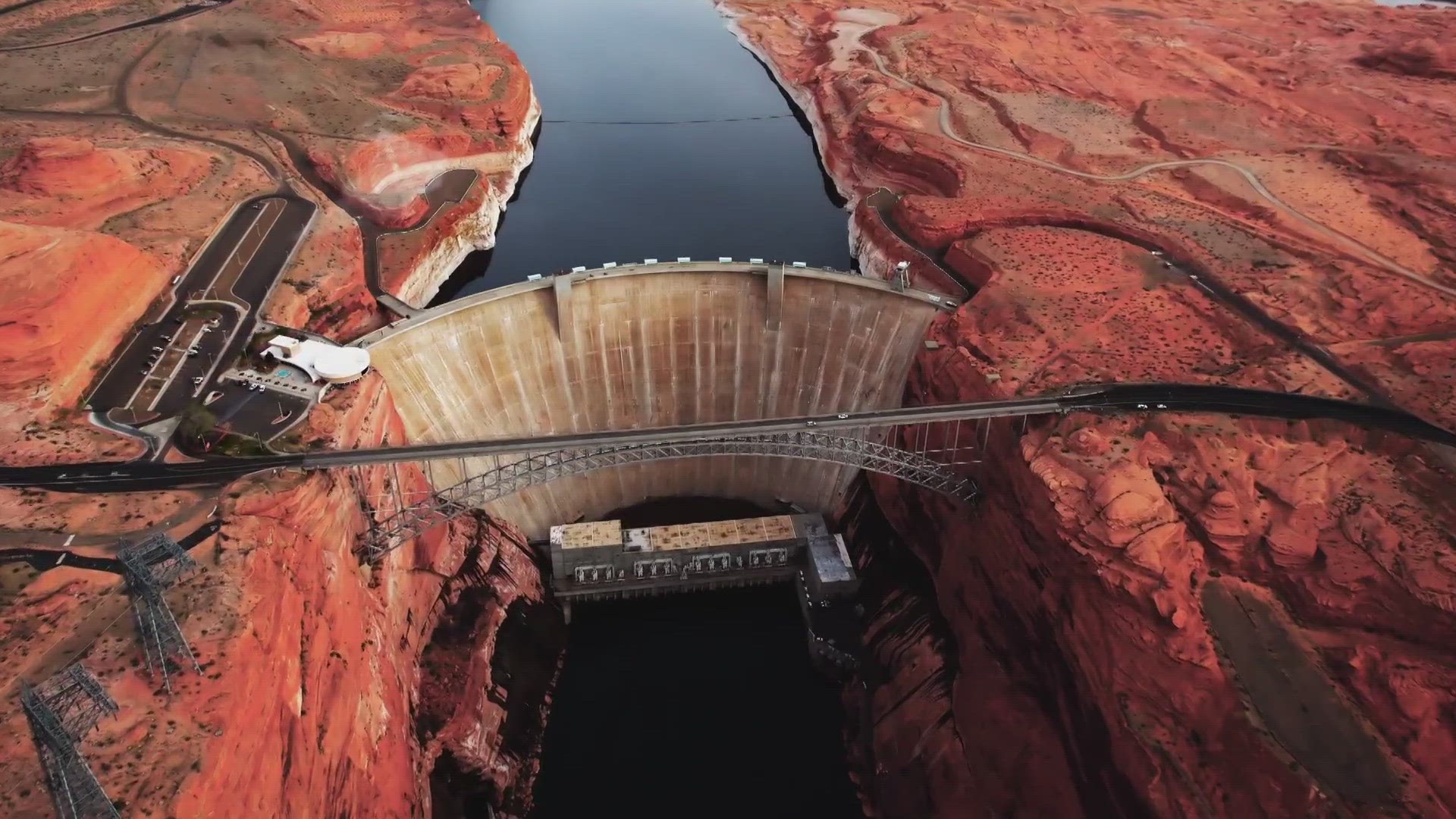LAKE POWELL, Ariz. — The water levels at Lake Powell have dropped so low that the turbines at the Glen Canyon Dam hydroelectric plant could stop functioning.
And even after an above-average snow season, the water levels are only expected to rise by about 6%, according to estimates by the Upper Colorado River Commission.
Now the U.S. Bureau of Reclamation has proposed digging tunnels around the dam, restoring the flow of the river and dropping the power turbines to ground level.
"It's kind of like a last-ditch, Hail Mary attempt to save the power plant," said Gary Wockner, executive director of the nonprofit organization Save the Colorado. “It makes no sense to manage the entire Colorado River system to generate electricity because you can generate electricity in all sorts of other ways.”
In the same Reclamation proposal, Alternative 6 recommends investing in renewable energy to augment hydro resources.
Wockner said that the bypass plan would mean the flow of the Colorado River through Glen Canyon would be somewhat restored to normal and the reservoir would dwindle to just a small pool of water, essentially disabling the purpose of water storage.
He said there could be some benefit to the health of the Colorado River system, but if they were going to let the reservoir fade, they should take it one step farther.
“So we actually think they should decommission the dam and tear it down, rather than trying to drill massive holes in it, using this sort of Hail Mary approach to keep the turbines spinning to create hydropower," he said.
Wockner said there will never again be enough water in the Colorado River system to support two dams, so the idea is to take the Glen Canyon dam out and allow the water from Lake Powell to flow naturally into Lake Mead.
That would allow the water levels behind the Hoover Dam to build, while also bringing dramatic improvements to the overall health of the Colorado River system, he said.
“So there’s a huge opportunity here to right some historic environmental wrongs and perhaps make more logical sense about how we manage the entire river system," he said.
SUGGESTED VIDEOS: Colorado Climate

